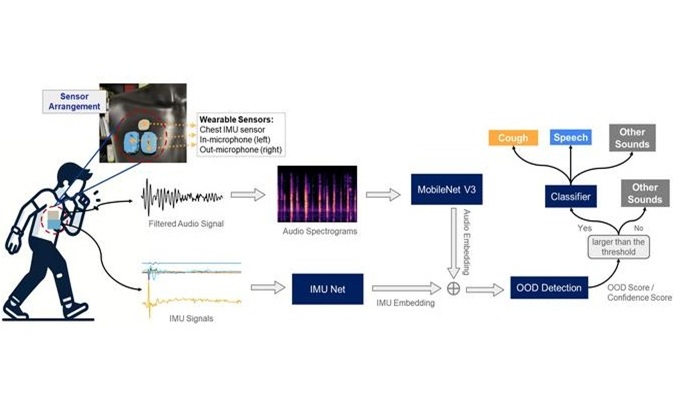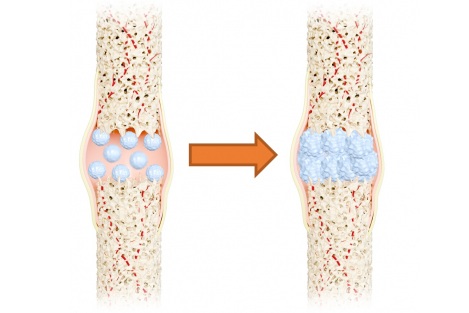Study Finds AI Falls Short When Analyzing Medical Data
|
By HospiMedica International staff writers Posted on 20 Nov 2018 |
A study conducted at the Icahn School of Medicine at Mount Sinai (New York, NY, USA) has found that artificial intelligence (AI) tools trained to detect pneumonia on chest X-rays suffered significant decreases in performance when tested on data from outside health systems. These findings suggest that unless AI in the medical space is carefully tested for performance across a wide range of populations, the deep learning models may not perform as accurately as expected.
Amidst the growing interest in the use of computer system frameworks called convolutional neural networks (CNN) to analyze medical imaging and provide a computer-aided diagnosis, recent studies have found that AI image classification may not generalize to new data as well as commonly portrayed. The researchers at the Icahn School of Medicine at Mount Sinai assessed how AI models identified pneumonia in 158,000 chest X-rays across three medical institutions. They chose to study the diagnosis of pneumonia on chest X-rays due to its common occurrence, clinical significance, and prevalence in the research community.
The researchers found that in three out of five comparisons, the performance of CNNs in diagnosing diseases on X-rays from hospitals outside of its own network was significantly lower as compared to X-rays from the original health system. However, CNNs were able to detect the hospital system where an X-ray was acquired with a high-degree of accuracy, and cheated at their predictive task based on the prevalence of pneumonia at the training institution. The researchers found that the key problem in using deep learning models in medicine was their use of a massive number of parameters, making it challenging to identify specific variables driving predictions, such as the types of CT scanners used at a hospital and the resolution quality of imaging.
“Our findings should give pause to those considering rapid deployment of AI platforms without rigorously assessing their performance in real-world clinical settings reflective of where they are being deployed,” said senior author Eric Oermann, MD, Instructor in Neurosurgery at the Icahn School of Medicine at Mount Sinai. “Deep learning models trained to perform medical diagnosis can generalize well, but this cannot be taken for granted since patient populations and imaging techniques differ significantly across institutions.”
“If CNN systems are to be used for medical diagnosis, they must be tailored to carefully consider clinical questions, tested for a variety of real-world scenarios, and carefully assessed to determine how they impact accurate diagnosis,” said first author John Zech, a medical student at the Icahn School of Medicine at Mount Sinai.
Related Links:
Icahn School of Medicine at Mount Sinai
Amidst the growing interest in the use of computer system frameworks called convolutional neural networks (CNN) to analyze medical imaging and provide a computer-aided diagnosis, recent studies have found that AI image classification may not generalize to new data as well as commonly portrayed. The researchers at the Icahn School of Medicine at Mount Sinai assessed how AI models identified pneumonia in 158,000 chest X-rays across three medical institutions. They chose to study the diagnosis of pneumonia on chest X-rays due to its common occurrence, clinical significance, and prevalence in the research community.
The researchers found that in three out of five comparisons, the performance of CNNs in diagnosing diseases on X-rays from hospitals outside of its own network was significantly lower as compared to X-rays from the original health system. However, CNNs were able to detect the hospital system where an X-ray was acquired with a high-degree of accuracy, and cheated at their predictive task based on the prevalence of pneumonia at the training institution. The researchers found that the key problem in using deep learning models in medicine was their use of a massive number of parameters, making it challenging to identify specific variables driving predictions, such as the types of CT scanners used at a hospital and the resolution quality of imaging.
“Our findings should give pause to those considering rapid deployment of AI platforms without rigorously assessing their performance in real-world clinical settings reflective of where they are being deployed,” said senior author Eric Oermann, MD, Instructor in Neurosurgery at the Icahn School of Medicine at Mount Sinai. “Deep learning models trained to perform medical diagnosis can generalize well, but this cannot be taken for granted since patient populations and imaging techniques differ significantly across institutions.”
“If CNN systems are to be used for medical diagnosis, they must be tailored to carefully consider clinical questions, tested for a variety of real-world scenarios, and carefully assessed to determine how they impact accurate diagnosis,” said first author John Zech, a medical student at the Icahn School of Medicine at Mount Sinai.
Related Links:
Icahn School of Medicine at Mount Sinai
Latest AI News
Channels
Critical Care
view channel
Origami Robots to Deliver Medicine Less Invasively and More Effectively
Delivering medicine to ulcers or other internal sites often requires invasive procedures that can disrupt surrounding tissues and lengthen recovery times. Traditional magnetic actuators used in soft robotics... Read more
Improved Cough-Detection Technology Aids Health Monitoring
Coughing serves as an important biomarker for tracking a variety of conditions and can help monitor the progress of respiratory diseases or predict when someone’s asthma is being exacerbated.... Read moreSurgical Techniques
view channel
Novel Glue Prevents Complications After Breast Cancer Surgery
Seroma and prolonged lymphorrhea are among the most common complications following axillary lymphadenectomy in breast cancer patients. These postoperative issues can delay recovery and postpone the start... Read more
Breakthrough Brain Implant Enables Safer and More Precise Drug Delivery
Delivering medication directly to specific regions of the brain has long been a major challenge in treating neurological disorders. Current implants and infusion systems typically reach only one or two... Read morePatient Care
view channel
Revolutionary Automatic IV-Line Flushing Device to Enhance Infusion Care
More than 80% of in-hospital patients receive intravenous (IV) therapy. Every dose of IV medicine delivered in a small volume (<250 mL) infusion bag should be followed by subsequent flushing to ensure... Read more
VR Training Tool Combats Contamination of Portable Medical Equipment
Healthcare-associated infections (HAIs) impact one in every 31 patients, cause nearly 100,000 deaths each year, and cost USD 28.4 billion in direct medical expenses. Notably, up to 75% of these infections... Read more
Portable Biosensor Platform to Reduce Hospital-Acquired Infections
Approximately 4 million patients in the European Union acquire healthcare-associated infections (HAIs) or nosocomial infections each year, with around 37,000 deaths directly resulting from these infections,... Read moreFirst-Of-Its-Kind Portable Germicidal Light Technology Disinfects High-Touch Clinical Surfaces in Seconds
Reducing healthcare-acquired infections (HAIs) remains a pressing issue within global healthcare systems. In the United States alone, 1.7 million patients contract HAIs annually, leading to approximately... Read moreHealth IT
view channel
Printable Molecule-Selective Nanoparticles Enable Mass Production of Wearable Biosensors
The future of medicine is likely to focus on the personalization of healthcare—understanding exactly what an individual requires and delivering the appropriate combination of nutrients, metabolites, and... Read moreBusiness
view channel
Philips and Masimo Partner to Advance Patient Monitoring Measurement Technologies
Royal Philips (Amsterdam, Netherlands) and Masimo (Irvine, California, USA) have renewed their multi-year strategic collaboration, combining Philips’ expertise in patient monitoring with Masimo’s noninvasive... Read more
B. Braun Acquires Digital Microsurgery Company True Digital Surgery
The high-end microsurgery market in neurosurgery, spine, and ENT is undergoing a significant transformation. Traditional analog microscopes are giving way to digital exoscopes, which provide improved visualization,... Read more
CMEF 2025 to Promote Holistic and High-Quality Development of Medical and Health Industry
The 92nd China International Medical Equipment Fair (CMEF 2025) Autumn Exhibition is scheduled to be held from September 26 to 29 at the China Import and Export Fair Complex (Canton Fair Complex) in Guangzhou.... Read more
















